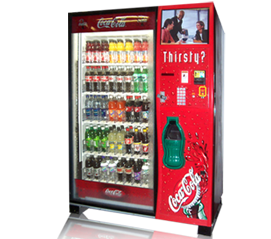I agree with many points that Bruce Levine brings up, but I also think that my generation has more to prove.
Levine points out that generations of young adults have been passive, compliant, fearful and helpless. I agree that many young adults growing up today are stuck in debt, using prescription medication (unnecessarily), taught to comply (not to think for themselves), taught that grades are what matters (not learning), under surveillance, obsessed with TV, and caught in a world of consumerism. I myself, have experienced all of the barriers, many extensively.
- The first reason why young adults are not disrupting, Levine writes of, is student debt-loans, which I am currently a member of. I agree that many students need to take loans, and being in debt is something that holds you back. This is definitely a constraint which I feel every day. In many ways I feel like the loans I signed have strapped me down like a gurney. Because I am using loans I feel like I have a responsibility to finish school. This affects my behavior while I am at school because my priorities are towards my grades rather than anything else. If I ever did find the time to protest anything, my behavior at any kind of demonstration would definitely be affected by my loans.

- The second reason Levine gives is about children being treated for disruptive disorders like ODD. When I was younger I was disruptive in the classroom and was told I had ADD. I knew I didn't need medication for my behavior, but my parents had me try it. It wasn't long before I gave up taking the meds. I remember feeling like they were being pushed on me. Later I realized how much money is produced by giving these pills to kids like myself who disrupted classroom structure. Levine highlights a striking statistic when he said; "Heavily tranquilizing antipsychotic drugs (e.g. Zyprexa and Risperdal) are now the highest grossing class of medication in the United States ($16 billion in 2010)."

- Another one of Levine's reasons stood out to me as very relative in my life titled, "Shaming Young People Who Take Education—But Not Their Schooling—Seriously." I remember disliking school growing up in Seattle and by the time I was in middle school I was uninterested in my courses. My graduating class was the first to be required to pass all three prongs of the WASL standardized test in order to graduate. This was challenge for many students and created another fear for students struggling to graduate. When I arrived at WSU I found that schools can actually be student friendly and classrooms could be ruled by democracy. I think that WSU dose a great job of teaching students to think outside of box. I have taken multiple courses including this one, which offer an opportunity to earn a grade through, effort and a desire to learn rather than points on a test. I have found classes where discussion and critical thinking are present much more interesting and pedagogic.

Bruce Levine dose an excellent job bringing up many validated and concrete arguments about the control that is being exerted over young adults today. I think he has makes a great case about how these powers have great jurisdiction over the disruptive acts of an entire generation of students and young adults.
Here are a few other possible reasons contributing to Levine's argument that America’s youth resistance has been crushed.
- The first issue, which I think could be contributing to this, is the Internet. I think that Americans are too comfortable and too complacent, mainly because they are busy in front of the computer. Similar to what Levine noted about Television. I think the Internet is guiltier because it allows people to become Internet bullies, or Internet revolutionaries. Before the Internet people would protest in the streets and cause real disruption. Today it seems like more people are turning to the Internet to vent their frustrations and injustices. I think the Internet can be a great communication tool for organizers, but it has created people who are uninterested in participating in any real movements, outside of the blog board.

- The Second issue goes along with what Levine mentioned about surveillance in his article, and is the introduction of DNA and technology evidence in court cases. This is not only an issue with DNA but in general, the increase in crime scene investigation technology. GPS location technology and Radio Frequency Identification have made is possible to track your every move. This technology is great at solving crimes, but it is also very powerful at striking fear in the public. The overwhelming presence of CSI type TV shows has created a belief that this technology makes anything traceable. This fear is present in more than just the minds of criminals; I think it also could be present in schools and at the work place. People know that what they do can be tracked back to them through a number of different avenues, mostly with technology.
- The Third issue is the economy and the competition for jobs. Many employees have been laid off, and are entering an already cluttered employment market. This increase in demand for jobs, and decrease in open positions, is creating a society where people are afraid to, or just don't care about protesting or disrupting. If job security is the number one thought, and priority, then any kind of disruption is not an option.








